Indian Political Leaders-Kp
Introduction
India’s political landscape is shaped by dynamic leaders who have left an indelible mark on the nation’s history and development. Whether through their vision, governance, or ability to connect with the masses, Indian political leaders play a pivotal role in shaping policies and addressing societal challenges. This article delves into the life, achievements, and legacy of a leader who has significantly influenced India’s political and social fabric.
Atal Bihari Vajpayee: (1924–2018), A Statesman and Visionary Leader

Atal Bihari Vajpayee (1924–2018) was one of India’s most revered political leaders, renowned for his statesmanship, eloquence, and commitment to the nation. A founding member of the Bharatiya Janata Party (BJP), Vajpayee served as the Prime Minister of India three times, with his most notable tenure from 1998 to 2004.
Key Contributions and Achievements:
- Nuclear Tests at Pokhran (1998):
Under his leadership, India conducted the second round of nuclear tests, establishing the country as a nuclear power. This bold move elevated India’s global standing but was executed with caution to maintain international relations. - Economic Reforms:
Vajpayee’s government focused on liberalizing the economy, encouraging privatization, and launching key infrastructure projects like the Golden Quadrilateral and other national highway developments, which revolutionized India’s road connectivity. - Kargil War (1999):
During the Kargil War, Vajpayee displayed exceptional leadership by garnering international support and ensuring India’s victory while maintaining restraint in conflict escalation. - Diplomacy and Peace Efforts:
A proponent of peaceful relations, Vajpayee initiated landmark peace efforts with Pakistan, including the historic Lahore Bus Service, even amid regional tensions. - Social Initiatives:
Programs like Sarva Shiksha Abhiyan aimed to enhance education accessibility across the nation, leaving a lasting impact on India’s socio-economic development.
Personal Traits:
Vajpayee was celebrated for his oratory skills and poetic talent, which he often used to inspire and connect with the masses. His pragmatic approach to politics, coupled with his integrity and humility, earned him widespread respect across party lines.
Legacy:
Awarded the Bharat Ratna in 2015, Vajpayee remains a symbol of inclusive leadership and visionary governance. His emphasis on nation-building, infrastructure, and diplomacy continues to inspire generations of leaders and citizens alike.
Jayaprakash Narayan (1902–1979): The Champion of Social Justice and Democracy

Jayaprakash Narayan, popularly known as JP, was a prominent Indian independence activist, political leader, and social reformer. Revered as the “Loknayak” (Leader of the People), JP played a crucial role in shaping India’s political landscape during and after the freedom struggle.
Key Contributions and Achievements:
- Role in India’s Independence Movement:
- JP was deeply inspired by Mahatma Gandhi’s ideals and joined the Indian National Congress (INC) to fight for India’s freedom.
- He played a pivotal role in the Quit India Movement (1942) and was imprisoned for his revolutionary activities against British rule.
- Post-Independence Leadership:
- Disillusioned with the existing political structure, JP distanced himself from party politics and focused on grassroots social reform.
- He was instrumental in founding the Sarvodaya Movement, which sought to uplift all sections of society based on Gandhian principles.
- The Total Revolution (1974):
- JP is best remembered for leading the Total Revolution against corruption, authoritarianism, and social injustice in the 1970s.
- His movement gained momentum during Prime Minister Indira Gandhi’s tenure and culminated in massive public protests against the imposition of the Emergency (1975–1977).
- JP’s leadership united opposition parties and inspired the formation of the Janata Party, which ended Congress’s monopoly on power in 1977.
- Advocate for Democracy and Decentralization:
- JP believed in empowering local governance and promoting participatory democracy. His ideas on decentralization remain relevant in contemporary political discourse.
Personal Ideals:
Jayaprakash Narayan was a staunch advocate of ethical governance, equality, and justice. He prioritized service over power and maintained a humble and selfless demeanor throughout his life.
Legacy:
JP’s contributions to India’s democracy and social reform earned him immense respect across political and social spectrums. He was posthumously awarded the Bharat Ratna in 1999 for his unparalleled service to the nation. His call for accountability and clean governance continues to resonate as an enduring example of principled leadership.
Indira Gandhi (1917–1984): India’s First Female Prime Minister

Indira Gandhi, the daughter of Jawaharlal Nehru, was a towering figure in Indian politics and the first woman to serve as the Prime Minister of India. Known for her strong leadership and decisive policies, she left a profound impact on India’s political and socio-economic landscape.
Key Contributions and Achievements:
- Green Revolution:
- Under her leadership, India adopted the Green Revolution, significantly improving agricultural productivity and achieving self-sufficiency in food grains.
- 1971 Bangladesh Liberation War:
- Indira played a crucial role in supporting Bangladesh’s independence, leading to the historic defeat of Pakistan in the 1971 war.
- This victory solidified India’s position as a regional power and earned her the title “Iron Lady of India.”
- Nationalization of Banks (1969):
- Indira Gandhi nationalized 14 major banks, ensuring financial resources were directed toward rural development and the weaker sections of society.
- Pokhran-I Nuclear Test (1974):
- She authorized India’s first nuclear test, codenamed Smiling Buddha, establishing India as a nuclear-capable state and enhancing its strategic position globally.
- Emergency Period (1975–1977):
- Faced with political and judicial challenges, Indira declared a state of Emergency, suspending civil liberties and imposing press censorship.
- While controversial, this period remains a significant chapter in India’s democratic evolution.
- Operation Blue Star (1984):
- She ordered the military operation to remove armed militants from the Golden Temple in Amritsar.
- This decision, though intended to restore order, led to widespread criticism and ultimately her assassination.
Leadership Style and Personality:
Indira Gandhi was known for her authoritative leadership and ability to make bold, often controversial, decisions. She demonstrated exceptional political acumen, resilience, and determination in navigating complex challenges.
Legacy:
Despite criticisms, Indira Gandhi remains a symbol of strength and determination. Her leadership reshaped India’s political landscape, with lasting contributions in agriculture, defense, and foreign policy. Posthumously awarded the Bharat Ratna in 1971, her legacy continues to inspire debates on leadership, democracy, and governance.
Lal Bahadur Shastri (1904–1966): A Leader of Simplicity and Integrity

Lal Bahadur Shastri was India’s second Prime Minister, serving from 1964 until his untimely death in 1966. Known for his humility, integrity, and strong leadership, Shastri played a pivotal role in steering the nation through challenging times, earning deep respect and admiration.
Key Contributions and Achievements:
- Leadership During the 1965 Indo-Pak War:
- Shastri’s leadership during the 1965 war with Pakistan showcased his decisive nature and commitment to national security.
- His rallying cry, “Jai Jawan, Jai Kisan” (Hail the Soldier, Hail the Farmer), inspired the nation and highlighted the importance of both defense and agriculture.
- Focus on Agricultural Development:
- Recognizing the need for self-sufficiency, Shastri promoted policies to boost agricultural production, laying the groundwork for the Green Revolution in India.
- Economic Reforms:
- Shastri encouraged policies to address food shortages, including promoting white revolution initiatives to increase milk production and supporting cooperative dairy farming.
- Tashkent Agreement (1966):
- After the 1965 war, Shastri worked towards peace with Pakistan, resulting in the Tashkent Agreement, a ceasefire pact brokered by the Soviet Union.
- His sudden death in Tashkent remains a subject of speculation, but it underscored his commitment to peace.
Personal Traits and Leadership Style:
- Shastri was renowned for his simplicity, honesty, and empathy for the common man.
- Despite his humble beginnings, he rose to prominence as a symbol of integrity and service.
Legacy:
- Lal Bahadur Shastri’s tenure, though brief, left a profound impact on India’s political and socio-economic fabric.
- He was posthumously awarded the Bharat Ratna in recognition of his selfless service to the nation.
- His legacy continues to inspire leaders and citizens alike, reminding them of the power of simplicity, determination, and unwavering commitment to the nation.
Charan Singh (1902–1987): The Champion of Farmers and Rural India
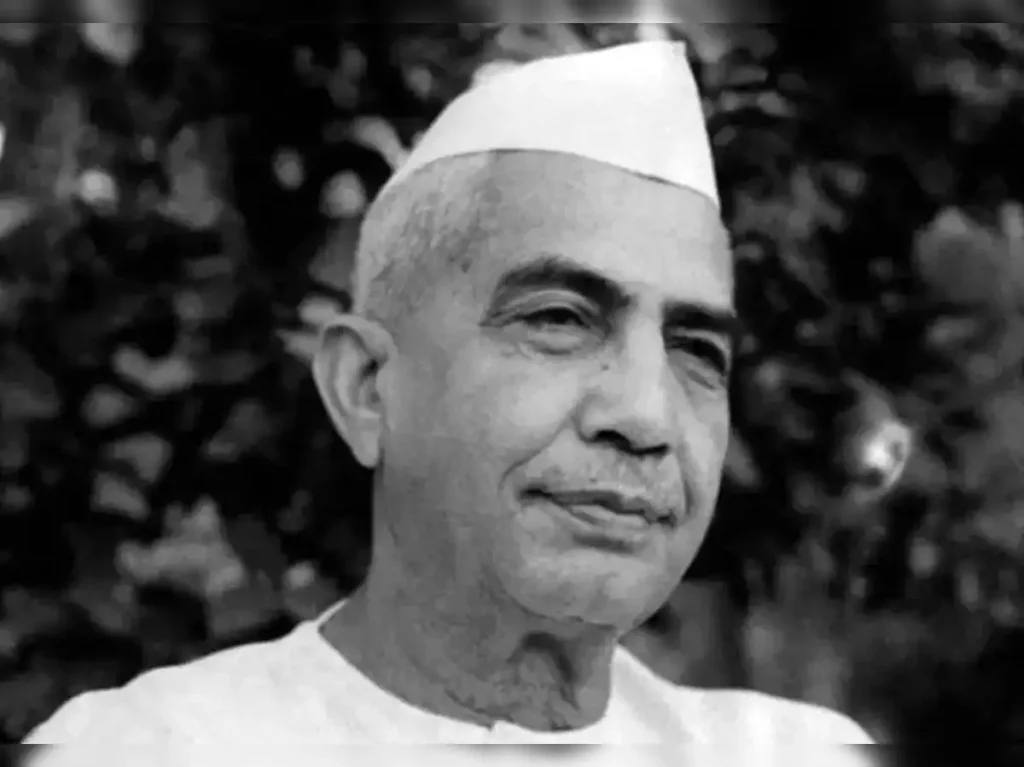
Charan Singh, a prominent Indian political leader and the fifth Prime Minister of India (1979–1980), was a staunch advocate for the rights of farmers and rural development. Often referred to as the “Champion of India’s Peasantry,” his policies and vision were centered around the upliftment of the agricultural community.
Key Contributions and Achievements:
- Focus on Farmers and Rural Development:
- Charan Singh’s political ideology was rooted in the welfare of farmers and rural populations.
- He introduced several policies aimed at land reforms, debt relief for farmers, and fair pricing for agricultural produce.
- Land Reforms:
- As a minister in Uttar Pradesh, he played a pivotal role in enacting land reforms, including the Abolition of Zamindari System, which eliminated feudal land ownership and empowered tenant farmers.
- Opposition to Industrial Bias:
- Charan Singh strongly opposed policies that favored industrialization at the expense of agriculture. He argued for a balanced approach to development that prioritized rural areas.
- Prime Ministerial Tenure:
- Although his tenure as Prime Minister was brief (July 1979–January 1980), he emphasized agricultural and rural issues during his leadership.
- Formation of Lok Dal:
- Charan Singh founded the Lok Dal, a political party that focused on representing the interests of farmers and rural communities.
Personal Ideals and Leadership Style:
- Charan Singh was known for his simplicity, deep connection with the grassroots, and unyielding commitment to agrarian welfare.
- His writings and speeches often highlighted the struggles of farmers and the need for equitable economic policies.
Legacy:
- Charan Singh’s contributions to agrarian reform and rural empowerment continue to resonate in Indian politics.
- His birthday, December 23, is celebrated as Kisan Diwas (Farmers’ Day) in India to honor his contributions to the agricultural sector.
- He remains an enduring symbol of rural empowerment and an advocate for equitable growth.
P. V. Narasimha Rao (1921–2004): The Architect of Economic Reforms

Pamulaparti Venkata Narasimha Rao, India’s ninth Prime Minister (1991–1996), is widely regarded as the father of India’s economic reforms. A visionary leader, scholar, and statesman, Rao’s tenure marked a transformative phase in India’s history, particularly in liberalizing the economy and modernizing the nation’s policies.
Key Contributions and Achievements:
- Economic Reforms:
- Rao initiated sweeping economic reforms in 1991, laying the foundation for India’s liberalization, privatization, and globalization (LPG) policies.
- Working closely with Finance Minister Dr. Manmohan Singh, he dismantled the License Raj, reduced trade barriers, and opened the economy to foreign investments.
- Balancing Politics and Policy:
- Rao skillfully navigated the political challenges of a minority government, ensuring stability and implementing critical reforms.
- His leadership during the economic crisis averted a potential default and set India on a path of rapid growth.
- Foreign Policy Initiatives:
- Rao redefined India’s foreign policy, strengthening ties with the United States, Europe, and ASEAN countries.
- He played a significant role in fostering closer relationships with Israel and initiating India’s “Look East” policy.
- Technological Advancement:
- Rao emphasized the importance of science and technology, supporting the growth of India’s IT sector, which later became a global hub for technology and innovation.
- Domestic Challenges:
- His tenure witnessed the demolition of the Babri Masjid (1992), a contentious issue that deeply affected India’s secular fabric.
- Despite criticism, Rao is remembered for his efforts to maintain peace and stability during turbulent times.
Personal Traits and Leadership Style:
- Known as the “Scholar Prime Minister,” Rao was a polyglot fluent in multiple languages and a prolific writer.
- His pragmatic approach to governance, intellectual depth, and quiet determination defined his leadership style.
Legacy:
- P. V. Narasimha Rao’s economic vision transformed India into one of the fastest-growing economies globally.
- Often referred to as the “Father of Indian Economic Reforms,” his contributions continue to shape India’s development.
- In 2020, the Government of India honored his legacy by commemorating his birth centenary.
Rao remains an enduring figure in Indian history for his foresight, resilience, and commitment to modernizing India’s economy and global standing.
Manmohan Singh:(1932-2023) The Architect of Modern India’s Economy

Manmohan Singh, India’s 13th Prime Minister (2004–2014) and an esteemed economist, is celebrated for his pivotal role in shaping India’s economic policies and fostering growth. Known for his integrity, intellect, and soft-spoken demeanor, Singh’s contributions as both Prime Minister and Finance Minister (1991–1996) have left an indelible mark on India’s development.
Key Contributions and Achievements:
- Economic Reforms (1991):
- As Finance Minister under P. V. Narasimha Rao, Singh spearheaded landmark economic reforms that liberalized India’s economy.
- His policies dismantled the License Raj, encouraged foreign investments, and set the stage for India’s economic globalization.
- His famous budget speech in 1991 marked the beginning of India’s economic resurgence.
- Prime Ministerial Tenure (2004–2014):
- Under Singh’s leadership, India experienced consistent economic growth, becoming one of the world’s fastest-growing major economies.
- His government launched flagship social welfare programs like MNREGA (Mahatma Gandhi National Rural Employment Guarantee Act) and the Right to Education Act, aimed at reducing poverty and promoting education.
- Singh’s tenure also saw the implementation of the India-U.S. Civil Nuclear Agreement, enhancing India’s energy security and international standing.
- Global Financial Crisis (2008):
- During the 2008 global financial crisis, Singh’s leadership helped India maintain economic stability and resilience, preventing a significant downturn.
- Technological Advancement and Infrastructure Development:
- Singh’s government focused on expanding infrastructure, promoting technology, and fostering growth in sectors like IT and telecommunications.
- Advancing India’s Global Presence:
- Singh played a key role in strengthening India’s relations with major global powers, including the U.S., Russia, and China.
- His foreign policies emphasized regional cooperation and economic diplomacy.
Personal Traits and Leadership Style:
- Manmohan Singh is known for his humility, scholarly approach, and consensus-driven leadership style.
- A trained economist, Singh earned his doctorate from Oxford University and held prominent roles, including Governor of the Reserve Bank of India and Deputy Chairman of the Planning Commission.
Legacy:
- Often called the “Father of Economic Reforms,” Singh’s transformative policies have been instrumental in India’s economic rise.
- Despite criticisms over policy paralysis during his later years as Prime Minister, Singh’s contributions to India’s growth and development remain widely acknowledged.
- His quiet yet impactful leadership continues to inspire leaders and policymakers globally.
L. K. Advani (b. 1927): The Architect of Modern BJP
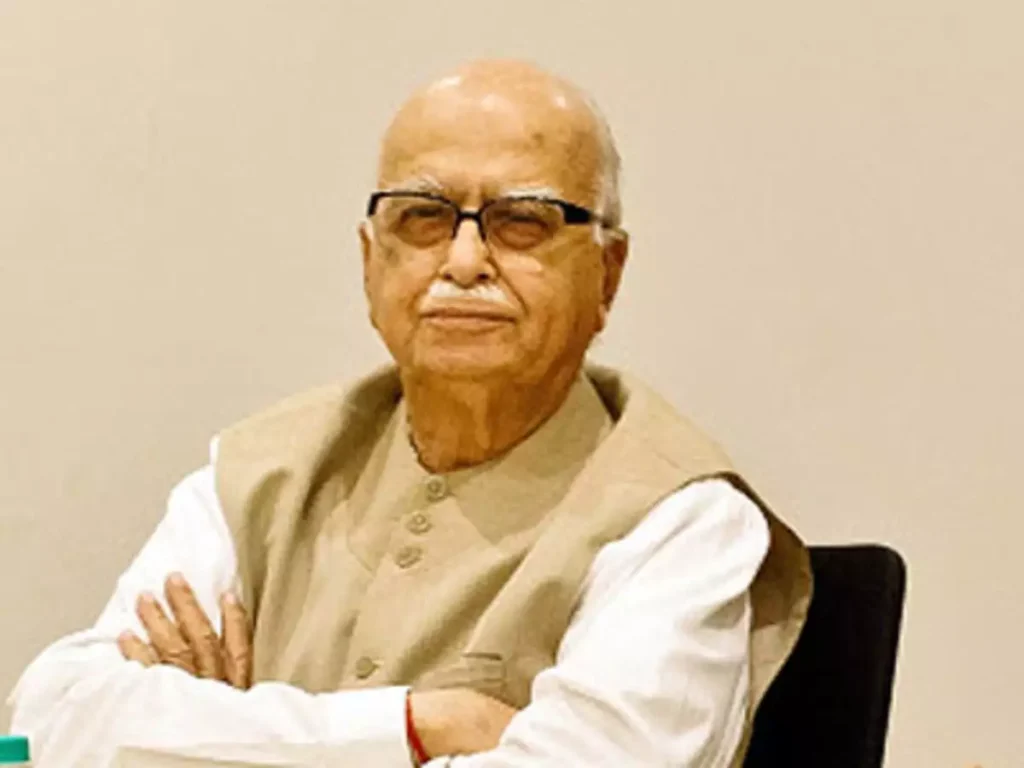
Lal Krishna Advani, a veteran Indian politician and co-founder of the Bharatiya Janata Party (BJP), has played a pivotal role in shaping the party into a significant force in Indian politics. Known for his organizational skills, ideological commitment, and leadership, Advani’s contributions have left an indelible mark on India’s political landscape.
Key Contributions and Achievements:
- Co-Founder of the BJP:
- Along with Atal Bihari Vajpayee, Advani co-founded the Bharatiya Janata Party (BJP) in 1980, giving it a distinct ideological identity rooted in Hindutva and nationalism.
- Rath Yatra and Ram Janmabhoomi Movement:
- Advani’s 1990 Rath Yatra from Somnath to Ayodhya was a defining moment in Indian politics, galvanizing mass support for the Ram Janmabhoomi movement and establishing the BJP as a dominant political force.
- Deputy Prime Minister of India (2002–2004):
- As Deputy Prime Minister under Atal Bihari Vajpayee, Advani played a key role in governance, focusing on internal security and administrative reforms.
- Role in Strengthening BJP:
- Advani is credited with transforming the BJP from a marginal political entity into a major national party, emphasizing grassroots mobilization and disciplined organization.
- Focus on National Security:
- As Home Minister (1998–2004), he prioritized internal security, counter-terrorism measures, and modernizing India’s intelligence and law enforcement agencies.
- Election Campaigns:
- Advani’s leadership in the BJP’s election campaigns, especially during the 1990s and early 2000s, significantly contributed to the party’s rise to power.
Personal Traits and Leadership Style:
- Known for his discipline, strategic thinking, and commitment to ideology, Advani has been a guiding force for many BJP leaders.
- He is a prolific writer and authored his autobiography, “My Country My Life,” which offers insights into his life and political journey.
Legacy:
- L. K. Advani is often referred to as the “Iron Man of BJP” for his steadfast dedication to the party’s vision and growth.
- While his influence in active politics has waned in recent years, his contributions to Indian politics and the rise of the BJP remain unparalleled.
- His leadership during critical junctures in India’s political history continues to inspire generations of political leaders.
Narendra Modi (b. 1950): A Visionary Leader and Architect of Modern India

Narendra Modi, India’s current Prime Minister since 2014, is one of the most prominent and polarizing figures in Indian politics. Known for his charismatic leadership and bold reforms, Modi has played a crucial role in shaping the nation’s political, economic, and social trajectory.
Key Contributions and Achievements:
- Economic Reforms and GST Implementation:
- Modi’s government introduced the Goods and Services Tax (GST) in 2017, a landmark reform aimed at simplifying the country’s indirect tax structure.
- His focus on economic modernization also included initiatives like Make in India and Startup India, designed to boost manufacturing and entrepreneurship.
- Demonetization (2016):
- In November 2016, Modi announced the demonetization of high-value currency notes in an effort to combat black money, counterfeit currency, and corruption. The move was controversial, with mixed reactions, but it marked a significant shift in the country’s approach to economic governance.
- Digital India and Infrastructure Development:
- Modi’s Digital India initiative sought to enhance access to digital services, promoting e-governance, and bridging the digital divide.
- His government has also launched large-scale infrastructure projects, including highways, railways, and smart cities.
- Foreign Policy and Global Presence:
- Modi has strengthened India’s foreign relations, enhancing ties with major global powers like the United States, Japan, and Israel, and playing a more prominent role in regional and international forums.
- His leadership during events like the Paris Climate Agreement and strategic partnerships in defense and technology has elevated India’s global standing.
- Social Policies and Welfare Initiatives:
- Modi’s administration has launched significant welfare programs, including Pradhan Mantri Jan Dhan Yojana (financial inclusion), Swachh Bharat Abhiyan (cleanliness campaign), and Ayushman Bharat (health insurance scheme for the poor).
- Handling of National Security and Terrorism:
- Modi’s government has focused on strengthening India’s national security, with a strong stance against terrorism, particularly from neighboring Pakistan. His leadership during events like the Pulwama attack and the subsequent Balakot airstrike has been widely praised by supporters.
Personal Traits and Leadership Style:
- Narendra Modi is known for his dynamic communication skills, use of social media, and ability to connect with the masses through programs like Mann Ki Baat.
- His leadership style is often described as decisive, assertive, and focused on long-term goals.
Legacy:
- Modi’s tenure has been marked by transformative reforms, rapid economic growth, and a growing global profile for India.
- His leadership has earned both staunch support for his vision and criticisms regarding his handling of social harmony, religious tensions, and some controversial policies.
- As a leader, Modi’s impact on Indian politics and governance will continue to influence the nation for years to come.
Amit Shah (b. 1964): The Strategist Behind BJP’s Rise

Amit Shah, one of India’s most influential politicians, is the current Home Minister of India and a senior leader of the Bharatiya Janata Party (BJP). Known for his organizational skills and political acumen, Shah has played a crucial role in transforming the BJP into a dominant force in Indian politics.
Key Contributions and Achievements:
- BJP Organizational Growth:
- As the BJP President from 2014 to 2020, Shah led the party through a series of successful elections, including securing major wins in states like Uttar Pradesh and Gujarat.
- His ability to connect with grassroots organizations and manage complex election strategies has been a key factor in BJP’s electoral successes.
- Strategic Political Leadership:
- Shah is known for his strategic thinking, particularly during the 2014 and 2019 general elections, where the BJP secured decisive victories under the leadership of Narendra Modi.
- He was instrumental in the party’s expansion, particularly in states where BJP had limited presence, such as West Bengal and the northeastern states.
- Home Minister and Policy Reforms:
- As Home Minister, Shah has overseen significant policy initiatives, including the abrogation of Article 370 in Jammu and Kashmir, a historic move that revoked the region’s special status.
- He has also been involved in the passage of the Citizenship Amendment Act (CAA), which sparked nationwide debates and protests.
- Internal Security and Law & Order:
- Shah has emphasized strengthening internal security and addressing terrorism, particularly in Jammu and Kashmir, and has been a proponent of tough measures against insurgency and terrorism.
- Role in Modi Government:
- Shah shares a long-standing political partnership with Prime Minister Narendra Modi. The two have worked closely, particularly in reshaping India’s political and governance landscape.
Personal Traits and Leadership Style:
- Known for his meticulous planning, organizational skills, and political insight, Shah is often described as a master strategist in Indian politics.
- He is also recognized for his quiet and focused demeanor, in contrast to the more charismatic public personas of some other leaders.
Legacy:
- Amit Shah’s role in shaping the modern BJP and his leadership in key national policies, including internal security and constitutional reforms, has solidified his position as one of India’s most powerful political figures.
- His political strategies and contributions to the growth of the BJP are likely to influence the future trajectory of Indian politics for years to come.
Yogi Adityanath (b. 1972): The Firebrand Chief Minister of Uttar Pradesh

Yogi Adityanath, the current Chief Minister of Uttar Pradesh (since 2017), is a prominent political leader known for his strong leadership style, emphasis on law and order, and association with the Bharatiya Janata Party (BJP). Before entering politics, Adityanath was a spiritual leader, heading the Gorakhnath Math, a well-known Hindu religious institution.
Key Contributions and Achievements:
- Chief Minister of Uttar Pradesh:
- Adityanath assumed office as Chief Minister of Uttar Pradesh in 2017, with a focus on improving law and order, promoting Hindu religious culture, and fostering economic development.
- His government has worked on infrastructure development, including road projects, expressways, and efforts to boost the state’s industrial growth.
- Focus on Law and Order:
- Under his leadership, Uttar Pradesh has seen a crackdown on organized crime and corruption.
- He has been vocal about enforcing stringent measures against criminals, particularly in combating mafia rule and illegal activities.
- Hindutva Agenda and Religious Identity:
- Adityanath is known for his staunch pro-Hindutva views and for promoting Hindu religious symbols and culture.
- His tenure has seen the development of various Hindu religious sites, and he has taken strong positions on issues like cow protection and anti-conversion laws.
- Economic and Developmental Initiatives:
- The Yogi government has focused on industrial growth and investment in Uttar Pradesh, aiming to improve the state’s business environment and create job opportunities.
- His administration has also made efforts to improve the state’s infrastructure, including the construction of highways, and the promotion of tourism through the development of heritage sites.
- Handling of the COVID-19 Pandemic:
- Adityanath’s government faced significant challenges during the COVID-19 pandemic, especially managing the migrant crisis. His handling of the situation was a subject of both praise and criticism, with significant attention on the state’s healthcare capacity and lockdown measures.
Personal Traits and Leadership Style:
- Yogi Adityanath is known for his assertive and no-nonsense approach to governance.
- His leadership style is often described as decisive, focused, and uncompromising, particularly on issues related to law enforcement and religious identity.
Legacy:
- Yogi Adityanath has become one of the most influential figures in Indian politics, particularly within the BJP, with a strong regional base in Uttar Pradesh.
- While his tenure has seen significant infrastructural and security improvements, his policies and statements, especially on religious issues, have also sparked controversies, making him a polarizing figure in Indian politics.
- His leadership is expected to play a crucial role in the future political direction of Uttar Pradesh and the BJP’s national ambitions.
Devendra Fadnavis (b. 1970): A Key Leader of Maharashtra’s BJP
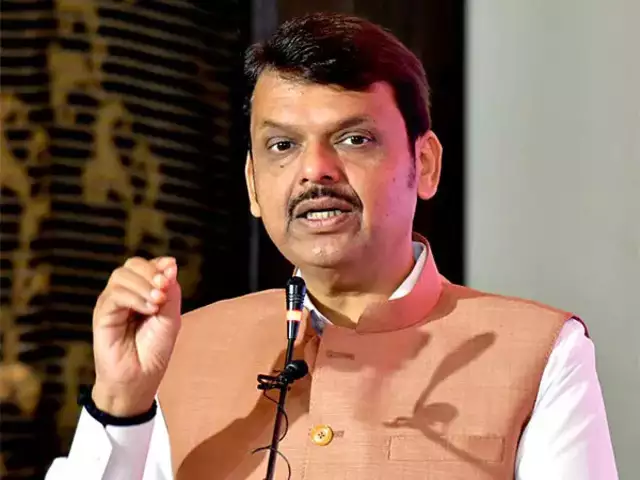
Devendra Fadnavis, born in 1970, is a prominent Indian politician from Maharashtra and a senior leader of the Bharatiya Janata Party (BJP). He served as the Chief Minister of Maharashtra from 2014 to 2019 and is known for his focus on governance reforms, infrastructure development, and economic growth in the state.
Key Contributions and Achievements:
- Chief Minister of Maharashtra (2014–2019):
- Fadnavis served as Maharashtra’s Chief Minister from 2014 to 2019, leading a coalition government. His tenure focused on improving the state’s infrastructure, urban development, and governance reforms.
- During his time as Chief Minister, he initiated several large-scale projects aimed at enhancing Mumbai’s infrastructure, including the Mumbai Coastal Road Project and efforts to resolve water scarcity issues.
- Focus on Infrastructure Development:
- Fadnavis made significant strides in improving Maharashtra’s infrastructure, with major projects such as Mumbai Metro, Mumbai Trans Harbour Link, and efforts to develop smart cities across the state.
- He emphasized creating a robust infrastructure to promote economic growth, particularly in industrial zones and transportation.
- Economic and Administrative Reforms:
- As Chief Minister, Fadnavis focused on administrative reforms to streamline governance, enhance efficiency, and improve service delivery in various sectors, including education and healthcare.
- His efforts were also directed toward attracting investment in Maharashtra to foster job creation and economic growth.
- Political Leadership:
- Prior to becoming Chief Minister, Fadnavis was the Leader of Opposition in the Maharashtra Legislative Assembly and a member of the state’s legislative council.
- Known for his political acumen, he played a significant role in strengthening the BJP’s position in Maharashtra and has remained an influential figure in the state’s politics.
Personal Traits and Leadership Style:
- Fadnavis is known for his strategic thinking, calm demeanor, and focus on governance.
- His leadership style is characterized by a blend of pragmatism and vision, with an emphasis on transparency and accountability in administration.
Legacy:
- Devendra Fadnavis is recognized as one of the key leaders of the BJP in Maharashtra, and his tenure as Chief Minister is viewed as one that prioritized development and modernization.
- Though his government faced challenges, including political instability towards the end of his tenure, Fadnavis continues to be a major political figure in Maharashtra, playing an important role in shaping the state’s political landscape.


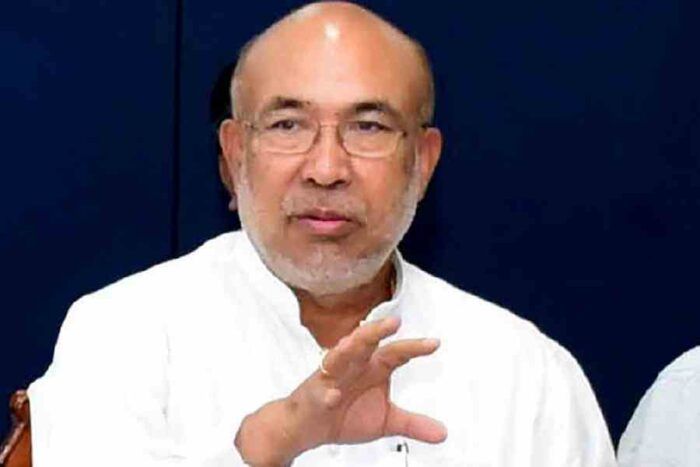


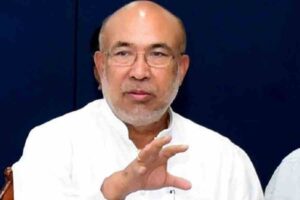

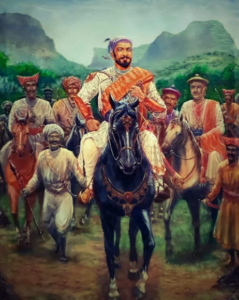



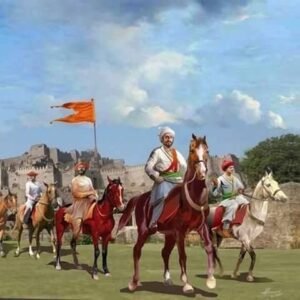

Post Comment